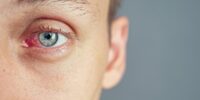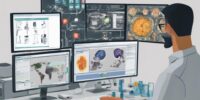What Is Age-Related Macular Degeneration (Amd)

Age-related macular degeneration (AMD) is a prevalent eye disorder affecting a significant proportion of the elderly population worldwide.
It is characterized by progressive damage to the macula, a region in the retina responsible for central vision.
This condition poses a substantial burden on individuals’ visual function and quality of life.
Understanding the risk factors, symptoms, diagnosis, treatment options, and preventive measures associated with AMD is crucial for effective management and improved outcomes.
This article aims to provide a comprehensive overview of AMD, facilitating better knowledge and awareness among healthcare professionals and the general population.
Key Takeaways
- Age is a significant risk factor for AMD.
- Genetic factors and certain genetic variants play a role in the development of AMD.
- Smoking increases the risk of AMD.
- Early detection of AMD through advanced diagnostic techniques is crucial for timely interventions and preserving visual function.
Risk Factors for Age-Related Macular Degeneration (AMD
The identification of risk factors for age-related macular degeneration (AMD) is essential in understanding the etiology and progression of the disease. AMD is a leading cause of vision loss in older adults and is characterized by the degeneration of the macula, a small area in the center of the retina.
Several risk factors have been identified for AMD, including age, genetics, smoking, and certain genetic variants. The causes of AMD are multifactorial, involving complex interactions between genetic and environmental factors. Research on AMD has focused on understanding the underlying mechanisms and identifying potential therapeutic targets.
Current advancements in AMD treatment include the use of anti-vascular endothelial growth factor (VEGF) agents to prevent the growth of abnormal blood vessels in the retina. However, further research is needed to develop more effective and targeted treatments for AMD.
Symptoms and Early Signs of Age-Related Macular Degeneration (AMD
One of the earliest indicators of age-related macular degeneration is the presence of drusen, which are small yellow deposits that accumulate under the retina. Drusen can be observed during an eye examination and their presence suggests the possibility of age-related macular degeneration.
Early detection of age-related macular degeneration is crucial in order to initiate timely interventions and prevent further vision loss.
Lifestyle changes have been found to play a role in the prevention and progression of age-related macular degeneration. These changes may include adopting a healthy diet rich in fruits, vegetables, and omega-3 fatty acids, quitting smoking, maintaining a healthy weight, and exercising regularly.
However, more research is needed to fully understand the impact of lifestyle changes on age-related macular degeneration.
Diagnosing Age-Related Macular Degeneration (AMD
Diagnosing age-related macular degeneration involves a comprehensive eye examination that includes assessing the presence of drusen and other characteristic changes in the retina. Early detection of AMD is crucial for timely intervention and management. The latest advancements in diagnostic techniques have further improved the accuracy and efficiency of diagnosing AMD.
Here are some key advancements in the diagnostic techniques for AMD:
- Optical Coherence Tomography (OCT): This non-invasive imaging technique provides detailed cross-sectional images of the retina, allowing for precise identification and measurement of drusen and other structural changes.
- Fundus Autofluorescence (FAF): FAF imaging helps in visualizing metabolic changes in the retina, aiding in the identification of areas of retinal dysfunction and disease progression.
- Multifocal Electroretinography (mfERG): This technique measures the electrical response of different areas of the retina, helping to assess functional changes and retinal sensitivity.
- Genetic Testing: Genetic testing can identify specific gene variations associated with AMD, providing valuable information for early detection and personalized treatment approaches.
Early detection of AMD through these advanced diagnostic techniques allows for timely intervention and management, improving the prognosis and quality of life for individuals affected by this progressive eye disease.
Treatment Options for Age-Related Macular Degeneration (AMD
Treatment options for age-related macular degeneration encompass a range of interventions aimed at slowing disease progression and preserving visual function. Surgical intervention is one such option, usually considered for individuals with advanced stages of the disease. The most common surgical procedure is macular translocation, where the macula is repositioned to an area of healthier tissue. This technique aims to improve visual acuity and reduce central scotomas. However, it is important to note that surgical interventions have associated risks and are typically reserved for cases where other treatment options have been exhausted.
In addition to surgical intervention, nutritional supplements have been extensively studied as a potential treatment for age-related macular degeneration. The Age-Related Eye Disease Study (AREDS) found that a specific combination of antioxidants and minerals, including vitamins C and E, beta-carotene, zinc, and copper, reduced the risk of advanced AMD in individuals with intermediate or advanced disease. Subsequent studies, such as AREDS2, have further explored the role of nutritional supplements and have refined the formulation to include lutein, zeaxanthin, and omega-3 fatty acids. While nutritional supplements may not reverse the disease, they may slow its progression and help preserve visual function.
Preventing Age-Related Macular Degeneration (AMD)
Preventing age-related macular degeneration involves adopting a healthy lifestyle that includes regular exercise, a balanced diet rich in fruits and vegetables, and avoiding smoking. Here are some dietary recommendations that can help reduce the risk of developing age-related macular degeneration:
- Eat a variety of fruits and vegetables: Consuming a wide range of colorful fruits and vegetables provides essential nutrients, such as vitamins C and E, zinc, lutein, and zeaxanthin, which are beneficial for eye health.
- Choose whole grains: Opting for whole grains over refined grains can help maintain a healthy weight and reduce the risk of developing AMD.
- Include omega-3 fatty acids: Consuming fish, such as salmon, mackerel, and sardines, as well as flaxseeds and walnuts, which are rich in omega-3 fatty acids, can help reduce the risk of AMD.
- Limit processed and high-fat foods: It is important to limit the consumption of processed foods and foods high in saturated and trans fats, as they can increase the risk of AMD.
Frequently Asked Questions
Are There Any Lifestyle Changes That Can Help Prevent Age-Related Macular Degeneration?
Lifestyle changes, including a healthy diet rich in fruits and vegetables, regular exercise, smoking cessation, and protecting the eyes from harmful UV rays, are considered important prevention strategies for age-related macular degeneration.
Can Age-Related Macular Degeneration Be Passed Down Through Genetics?
Age-related macular degeneration (AMD) can be passed down through genetics. Genetic testing can identify specific gene variants associated with AMD, enabling early detection and targeted treatment options to slow disease progression and preserve vision.
Is There a Cure for Age-Related Macular Degeneration?
Research is ongoing to find a cure for age-related macular degeneration (AMD). Various treatment options are available to manage the condition and slow its progression, but a definitive cure has not yet been discovered.
How Does Age-Related Macular Degeneration Affect Daily Activities Such as Reading and Driving?
Age-related macular degeneration (AMD) causes reading difficulties and visual impairment, impacting daily activities such as reading and driving. This condition affects the macula, leading to central vision loss and reduced ability to perform tasks requiring detailed visual acuity.
Are There Any Support Groups or Resources Available for Individuals With Age-Related Macular Degeneration?
Support groups and resources are available for individuals with age-related macular degeneration (AMD). These resources provide a platform for individuals to connect with others facing similar challenges and offer information, guidance, and emotional support for managing the condition.









